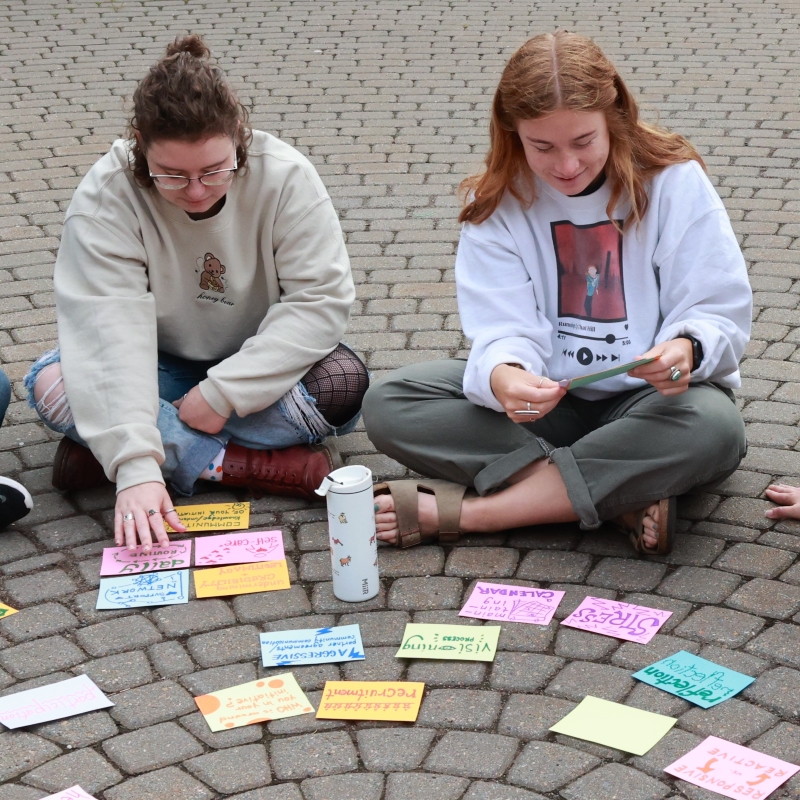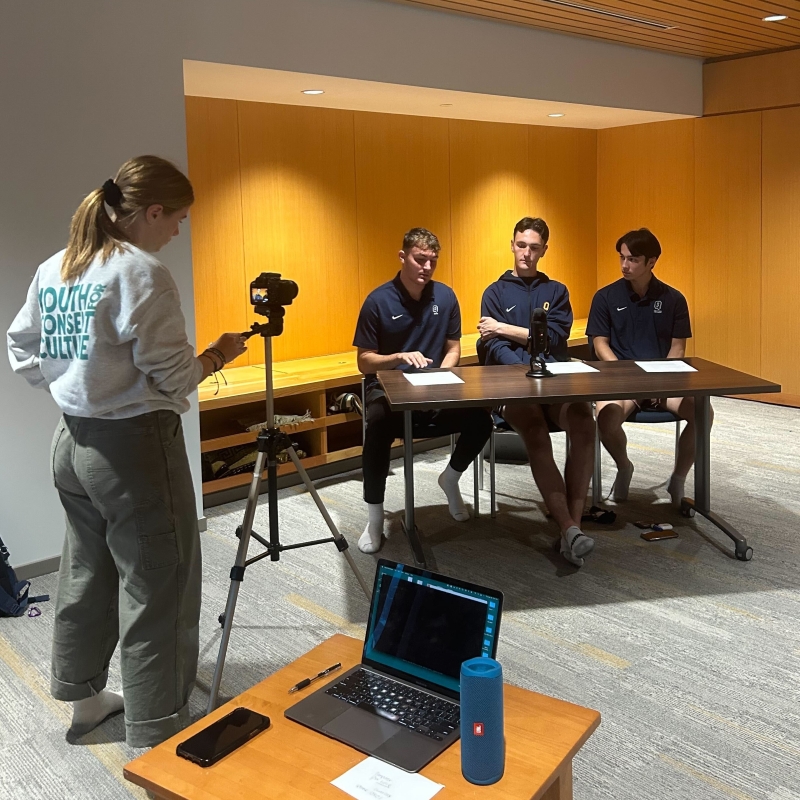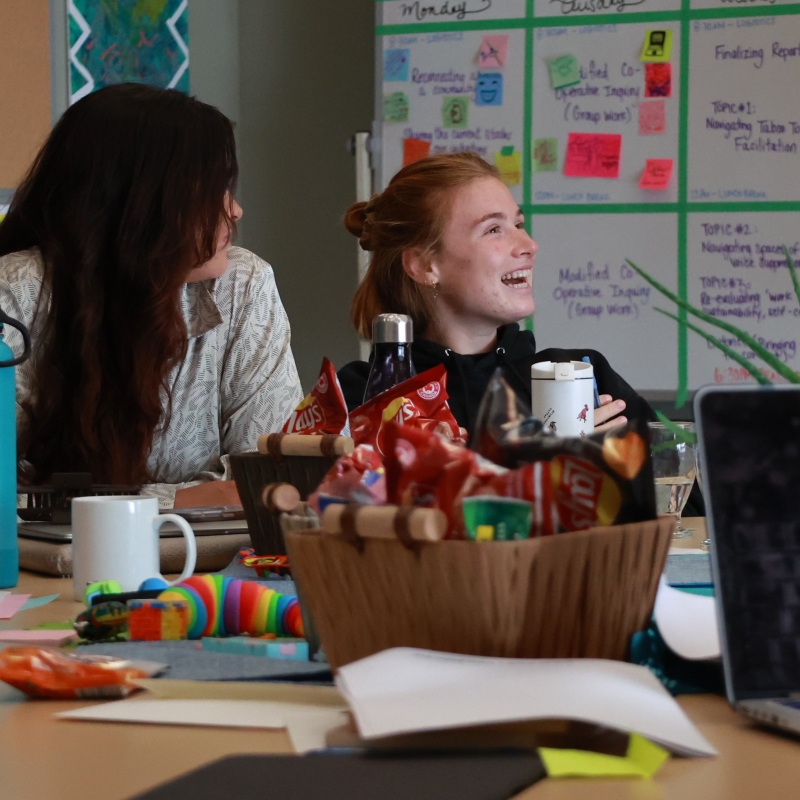Aubrey Rose Apps is a recent graduate of Queen’s University’s Global Development program. During her time at Queen’s, Aubrey joined and co-chaired a student-based advocacy group called Consensual Humans.
“I want to improve the student experience and reduce rates of sexual violence on campus,” Aubrey explains. “This is what I’m passionate about. It comes from my own lived experience being the youngest of a bunch of women – I’m the youngest of four sisters – so I was always really aware of the issue.”
Aubrey is motivated to continue this work beyond the walls of her alma mater, and when she began the Pathy Foundation Fellowship, she wanted to bring consent education to high school students.
“I think this education needs to come much earlier [than university],” she says.
These workshops are supposed to create an understanding of what consent and healthy relationships look like within the sports world, and then also an understanding that’s translatable to a broader context.
The athletes who go through this learning are able to become leaders in those discussions so that we are inspiring a culture of consent led by the voices of athletes.
The Pathy Fellowship supports graduating students from partner universities to lead a self-directed community-focused initiative. Fellows spend the first four weeks of the Fellowship at Coady Institute for an experiential learning component called Foundations for Community Change (FCC). During this time, Fellows are introduced to Coady’s approach to community-led development, and they explore topics such as leadership styles; working equitably with communities; monitoring, evaluation, and learning (MEL); participatory project planning; and more. This on-campus component is designed to help Fellows hone their plans and prepare for the 10-month community phase.
Aubrey says that the FCC sessions helped her think critically about her initiative and adapt her plans accordingly.
“While attending all of the different workshops, learning and perspective-shifting, I started to think a lot about whether there was going to be any social harm or social risk to students in a high school classroom environment,” Aubrey explains.
High school students don’t proactively choose to be in a classroom space, and they don’t choose who is included in that space. They could be involuntarily sharing that space with someone they have had issues with regarding consent and/or abuse. Students may not feel comfortable participating in a discussion of this nature in this setting, Aubrey further explained.
“So, I started to think about where youth are more authentically themselves. Where are there spaces that maybe youth are choosing to be?”
Aubrey says FCC inspired her to adapt a new approach – her workshops covering topics like consent and healthy relationships would be delivered to sports teams rather than high school students.
“I come from a sports background. I played rugby all throughout high school and really found myself as a young woman in sports,” she explains.
“I think sports are somewhere youth are more authentically themselves as they are choosing to be there in their free time. You also have the really interesting dynamic of a team culture. You are close to a certain extent, but, at the end of the day, you’re performing together and that can like bring up a lot of dynamics. And a lot of the things that we see happen in sports can be really easily related or are actually instances of nonconsensual behavior or abuse.”



Aubrey has titled her initiative, Youth for Consent Culture (YCC), and she is delivering workshops to athletes ranging from the ages of 15 to 25 in three modules: building culture, healthy connections, and consent conversations.
“These workshops are supposed to create an understanding of what those things look like – consent and healthy relationships – within the sports world, and then also an understanding that’s translatable to a broader context [outside of sports].
“Hopefully the athletes who go through this learning are able to become leaders in those discussions so that we are inspiring a culture of consent led by the voices of athletes.”
Youth for Consent Culture (YCC) is guided by an Athlete Advisory Committee who is responsible for reviewing workshop content and offering recommendations, ensuring that the organization is providing relevant and timely content and is centering athletes’ experiences.
Now in the Community Phase of the Fellowship, Aubrey has delivered programming to athletic groups from Ontario to Nova Scotia at both high school and university levels.
“I’ve also recently incorporated as a not-for-profit so that I can access more funding, which is really exciting. I hope this is something that I can continue doing as a career.”
Are you a graduating student from UOttawa, McGill, Carleton, StFX, Bishop’s, or Queen’s University? You may be eligible to apply.
To learn more about the Pathy Foundation Fellowship, visit pathyfellowship.com
